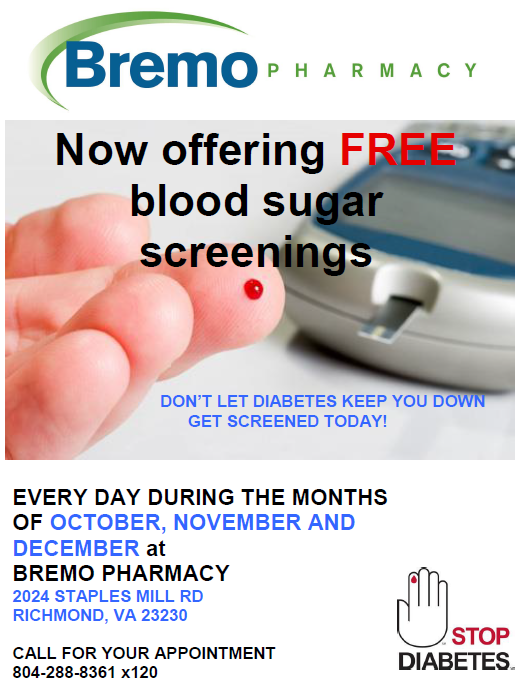
There is no cure for diabetes, but it can be managed. Balancing the food you eat with exercise and medicine (if prescribed) will help you control your weight and can keep your blood glucose in the healthy range. This can help prevent or delay complications. Many people with diabetes live long and healthful lives.
Here are some tips on living with diabetes.
Immunizations: Having the flu and pneumonia can be dangerous for anyone. But it is extra risky for people with diabetes or other chronic health problems.
- Every person with diabetes needs a flu shot each year. Flu shots do not give 100% protection, but they do make it much harder for you to catch the flu. For extra safety, it’s a good idea for the people you live with or spend a lot of time with to get a flu shot, too. You are less likely to get the flu if the people around you don’t have it. The best time to get your flu shot is beginning in September, but if you did not get it, you should as soon as you can anytime in the flu season to protect yourself. The shot takes about two weeks to take effect.
- A pneumonia shot is recommended for anyone with diabetes aged 2 or older. You can get a pneumonia shot anytime during the year. A pneumonia shot can protect you from other infections caused by the same bacteria.
Eye Care: There are steps you can take to avoid eye problems.
- Take care of your diabetes. Work with your health care team to keep your blood glucose in your target range.
- Bring high blood pressure under control. High blood pressure can make eye problems worse.
- Quit smoking. There are many options, including over-the-counter and prescriptions medications to help you quit and stay ‘smoke free’. Talk to your pharmacist to discuss smoking cessation options right for you.
- See your eye care professional at least once a year for a dilated eye exam. Having your regular doctor look at your eyes is not enough, nor is having your eyeglass prescription tested by an optician. Only optometrists and ophthalmologists can detect the signs of retinopathy. Only ophthalmologists can treat retinopathy.
Foot Care: There are many things you can do to keep your feet healthy.
- Take care of your diabetes. Work with your health care team to keep your blood glucose in your target range.
- Check your feet every day. Look at your bare feet for red spots, cuts, swelling, and blisters. If you cannot see the bottoms of your feet, use a mirror or ask someone for help.
- Be more active. Plan your physical activity program with your health care team.
- Ask your doctor and pharmacist about Medicare coverage for special shoes.
- Wash your feet every day. Dry them carefully, especially between the toes.
- Keep your skin soft and smooth. Rub a thin coat of skin lotion over the tops and bottoms of your feet, but not between your toes.
- If you can see and reach your toenails, trim them when needed. Trim your toenails straight across and file the edges with an emery board or nail file.
- Wear shoes and socks at all times. Never walk barefoot. Wear comfortable shoes that fit well and protect your feet. Check inside your shoes before wearing them. Make sure the lining is smooth and there are no objects inside.
- Protect your feet from hot and cold. Wear shoes at the beach or on hot pavement. Don’t put your feet into hot water. Test water before putting your feet in it just as you would before bathing a baby. Never use hot water bottles, heating pads, or electric blankets. You can burn your feet without realizing it.
- Keep the blood flowing to your feet. Put your feet up when sitting. Wiggle your toes and move your ankles up and down for 5 minutes, two or three times a day. Don’t cross your legs for long periods of time. Don’t smoke.
- Get started now. Begin taking good care of your feet today. Set a time every day to check your feet.
By: Kristie Dooley, 2016 PharmD Candidate
Source: American Diabetes Association
You can get your Blood Glucose checked by your Bremo pharmacist. The blood glucose screening is FREE through the months of October, November and December.
Call 804-288-8361 ext. 120 to schedule your appointment for dedicated one-on-one time with a pharmacist.


